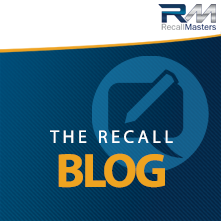Is this an Effective Way to Inform Recall Customers?
Is this an Effective Way to Inform Recall Customers?
A Blog Post by Dan Beres, Managing Partner & Chief Operations Officer
Consumers are notoriously difficult to reach when it comes to safety, needed repairs and attending to recalls. OEM and dealer methods include everything from phone calls, to text messages and direct mail. However, far too frequently, these notifications end up in the trash and are ignored.
Perhaps there is a new way to communicate with these customers, especially those second and third-generation owners. And that is social media.
While almost every dealer utilizes social media as a sales tool, many don’t want to use it as a platform to educate consumers about recalls for fear they will shy away from the message and head over to the competition. Newsflash – no brand is free of recalls and dealers are missing the opportunity to deliver a message about safety through social media.
Billions of consumers all over the world use one social media platform or another, making it easier than ever to get in front of consumers with your message. In fact, one manufacturer has jumped on the opportunity and joined this new era of transparency, with great success. A recent article in Automotive News reports that at one of the premier consumer auto events of the year, the New York Auto Show, Honda featured a Civic which crashed during official testing. Honda also encouraged current owners to share their personal stories on social media. By no means is this a strategy OEMs traditionally use at these events, which are well attended by both the public and major media outlets. However, consumers applauded Honda for their efforts, sharing their stories with Honda and, by default, the world, to positive response.
Perhaps social media is something dealers should use to inform and educate their customers about recalls which could then lead to building trust with your community and, as a result, an increase in service revenue. Of course, I entirely understand many dealers’ hesitations to publicize faults and problems by announcing to consumers that their vehicles have some issues.
But think about all the manufacturers who had problems with Takata airbags. This wasn’t a manufacturer or dealer issue. Instead, Takata was the premier (and majority) supplier of airbags for most manufacturers. When the avalanche of recalls came to light, many manufacturers decided to become more transparent in other areas. And consumers forgave them.
If you inform consumers about recalls over social media, you can establish trust with your consumers and open the lines of communication. It can be an excellent opportunity to gain more customers from consumers who run across your informative recall postings. I don’t believe it will hurt sales, but rather increase consumer confidence in the dealership.
Take the recent example from Honda and consider adopting a new social strategy. In the end, it can help communicate vital information to consumers and illustrate that you are you willing to talk the talk, but also ready to walk the walk. And that goes a long way to building trust and securing loyalty.
About the Author


